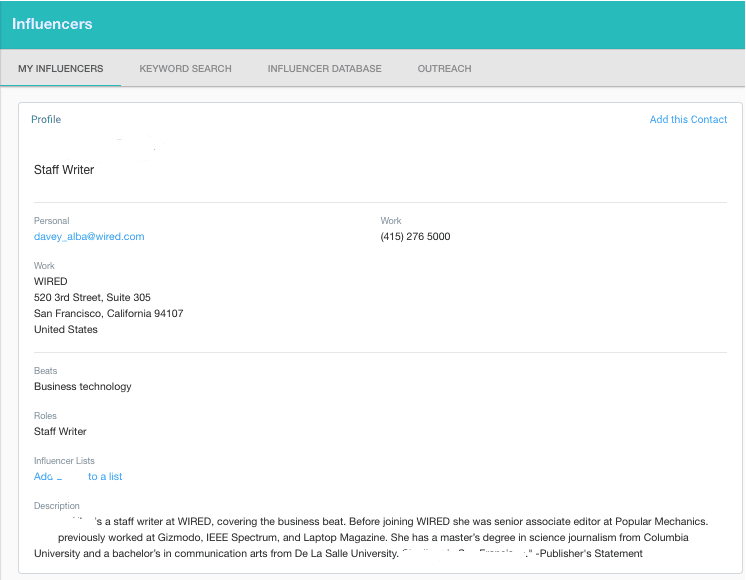This blog post is part of “The Ultimate Guide to Public Relations” blog series.
A common request we get from companies is to help with public relations–getting the business talked about among influential journalists and bloggers in their industries. Many wonder if they need to work with an agency anymore. It’s a good question. Lots of companies (and athletes and politicians) simply issue their news announcements on their websites and through social media accounts.
That works great for big brands and famous celebrities that have millions of followers. It’s not so great for companies trying to build that kind of following. Public relations is about getting covered by popular writers, publications, and other influencers to help raise awareness and build credibility for your company and your brand.
When it comes to outsourcing PR, agencies have a secret weapon that aids this effort tremendously–a media database platform. A media database platform is a software system that includes a database of journalists, publications, bloggers and other influencers, including their contact information. You can search for writers that cover a certain industry or market segment, build a list, and communicate directly with them about your company news.
Agencies use media databases to build media lists for clients, pitch stories to specific influencers, and to monitor coverage of your business and/or your competitors. Most allow you to send personalized emails using merge fields so you can personalize one email for multiple recipients. Some have features that allow journalists to post what stories they are working on and what kind of sources they are looking for to write the story.

A PR or marketing agency with a media database platform gives you access to a far more complete and targeted list of outlets for your company’s news. The reason most companies don’t have their own media database programs is because they are expensive–typical subscriptions start in the tens of thousands of dollars per year. That’s a lot of money for a business that may use the platform a few times per year.
Agencies with media databases are able to spread that cost over multiple clients, giving you access to the database (and to the firm’s expertise and experience in media relations) without paying for the entire platform. There are a couple of ways you can work with an agency to leverage this secret weapon. You can outsource an entire PR campaign to the agency and let them create and execute the strategy so you can focus on other priorities; or you can purchase media lists from an agency based on your search criteria and use it to perform your own outreach. To learn more about media databases, check out our blog – What Is a Media Database?
Can you do PR without access to a media database? Yes, but it will likely be very time-consuming and frustrating. You can search for news about your business, find out who is writing the articles, and then pitch them one by one–if you can find their contact information.
Another value media database platforms bring is that they work hard to keep their information up to date. Journalists move around, beats change, and contact information changes. The database is only as valuable as it is accurate.
Among the more popular media database platforms are Cision, Meltwater, and Muck Rack. Features and benefits vary. For a summary read our review of the platforms.
This blog post is part of “The Ultimate Guide to Public Relations” blog series.
